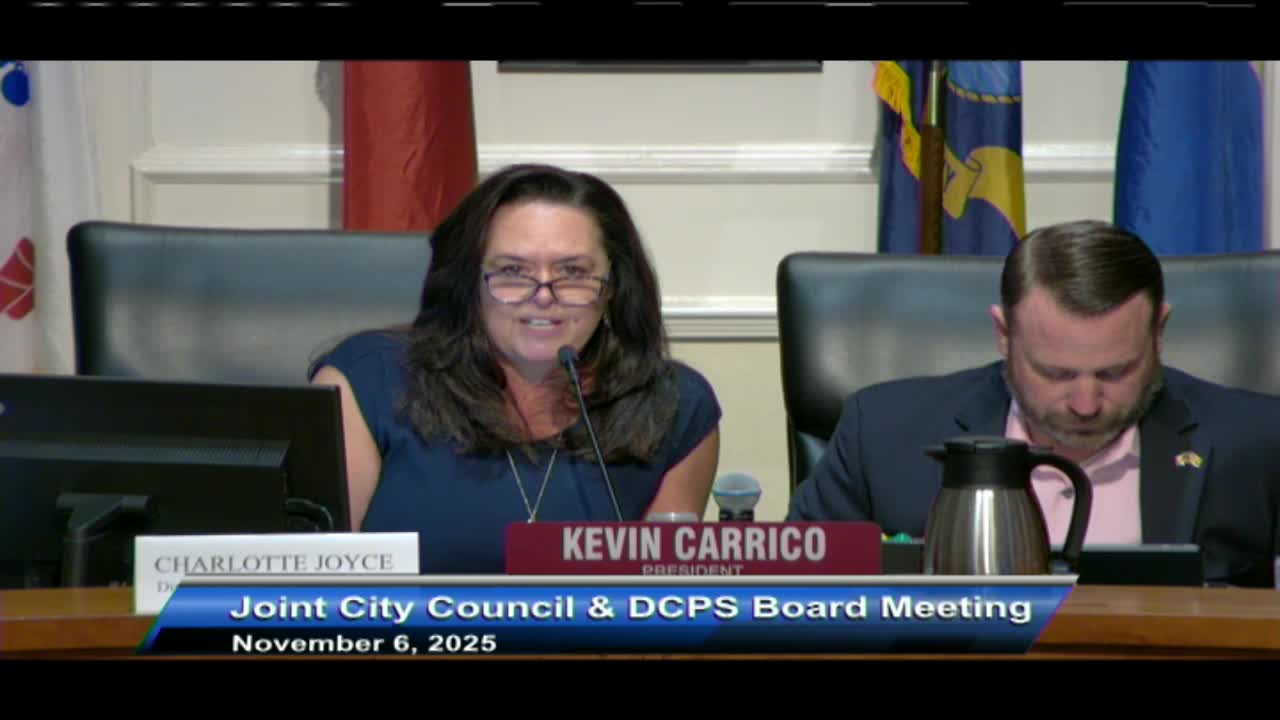Duval superintendent credits staff and progress-monitoring as district earns first-ever "A" grade
Get AI-powered insights, summaries, and transcripts
Subscribe
Summary
Superintendent Christopher Bernier told a joint meeting of the Jacksonville City Council and Duval County School Board that Duval County Public Schools earned its first-ever district "A" and described progress-monitoring, staffing changes and career-education efforts the district credits for the improvement.
Superintendent Christopher Bernier told a joint meeting of the Jacksonville City Council and the Duval County School Board that Duval County Public Schools earned its first-ever district "A" and that the score of 762 points meant the district met the state's threshold this year.
"What a difference a year makes," Bernier said, describing a jump from being dozens of points from an "A" to achieving the grade this year. He cautioned that state expectations continue to rise and said the district needs about "12 more points" to maintain the grade under evolving standards.
The announcement followed a rundown of the district's metrics. Bernier said the graduation rate in traditional schools has "cracked the 95 percent mark," and that school-level gains included 10 schools moving up two letter grades and 35 moving up one. He named examples of schools that improved, including Andrew Jackson (first-ever "A"), Annie R. Morgan, Northwest, Oceanway Elementary and Neptune Beach Elementary.
Bernier described the district's use of frequent progress monitoring (PM1, PM2, PM3) as a central strategy: early diagnostic testing, follow-up checks in January/February, and a final assessment that factors into school grades. "Progress monitoring is the game changer," he said, adding that results drive individualized "prescriptions" of interventions for students.
The superintendent also discussed the Duval Ready diploma and career-technical education (CTE) work that the district ties to industry certifications and capstone projects. He said the district has nearly doubled the number of students earning the Duval Ready diploma since 2023 and emphasized partnerships with local employers and universities to align programs to workforce needs.
Board members and council members asked about the district's ability to sustain gains and where the additional 12 points would come from; Bernier said the district has completed progress-monitoring 1 and is reviewing data in ASA meetings with regional leadership and principals. He said electronic adaptive tools, mentoring programs and classroom differentiation are part of the approach.
Why it matters: an "A" rating can influence community perception, employer relocation decisions and local conversation about school quality. Bernier said sustaining the grade will require continued focus on instruction, strategic staffing and targeted support for the district's remaining lower-rated schools.
Speakers quoted in this article are identified in the meeting transcript.
